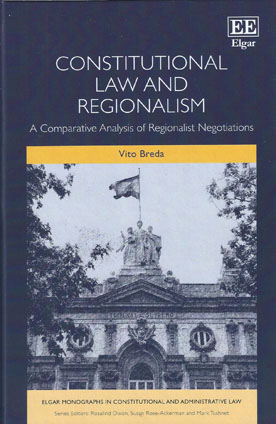
Constitutions and their systems are increasingly under pressure from identity groups such as regional and national minorities. Presenting the first comparative analysis of the negotiation of constitutional demands by these groups, Vito Breda uses an innovative methodology to create a richer understanding of the pluralistic nature of modern states.
Combining both political and constitutional analysis, Breda expertly analyses cases from the USA, Canada, UK, Spain, Italy, New Zealand and Australia, reviewing the practices of cooperation and litigation between these groups and central institutions.
An evaluation of the implications of the Catalonian, Puerto Rican and Scottish referenda show how regionalists seek to negotiate with central governments, defined by what they consider acceptable engagements under constitutional law. Both the systems and the constitutions themselves are changing under the pressure of these groups, but what remains is the distinctive constitutional structure ensuring democratic agreements emerge from difficult negotiation processes.
Timely and in-depth, this book is a vital contribution to discussion on constitutional law globally. It will also attract researchers interested in regional issues within law, political science and sociology, and particularly those who study the role of regional or nationalist movements inside democracies.